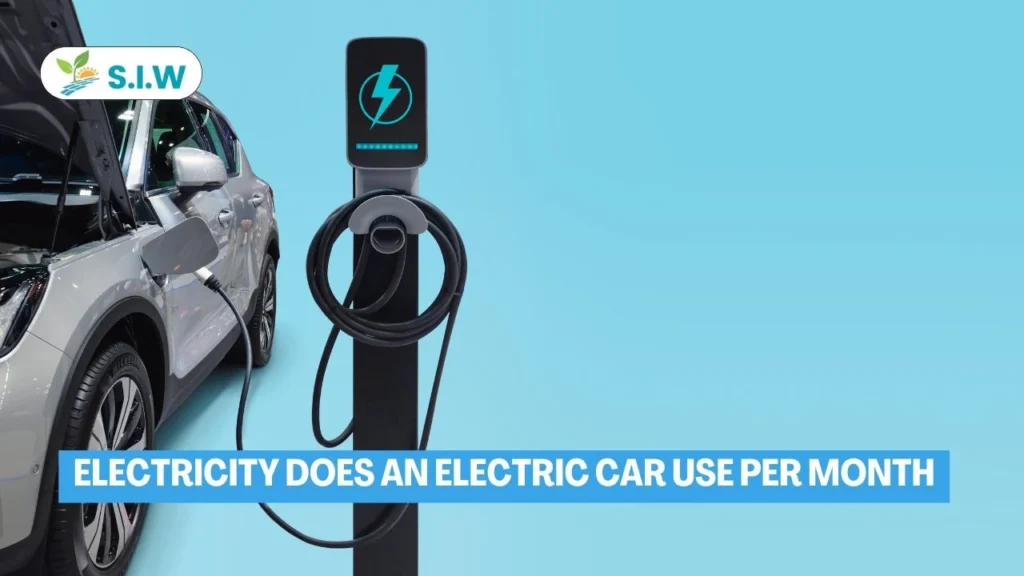Electric vehicles (EVs) are gaining popularity as a cleaner and more sustainable alternative to traditional gasoline-powered cars. One of the key considerations for potential EV owners is understanding how much electricity these vehicles use on a monthly basis. This guide delves into various factors that influence the electricity consumption of electric cars, providing a comprehensive overview to help you gauge how much electricity an EV might consume in a month.
What Affects Electricity Consumption?
Electric car electricity consumption is not a one-size-fits-all scenario. Several factors contribute to the total amount of electricity used, including:
1. Driving Habits
The way you drive significantly impacts the amount of electricity your electric car uses. Aggressive driving, frequent acceleration, and high-speed driving can lead to higher energy consumption. Conversely, smooth and steady driving can help optimize energy use and increase overall efficiency.
2. Vehicle Model and Efficiency
Different electric vehicles have varying energy efficiency ratings. EVs are often rated in terms of energy consumption per mile or kilometer, typically measured in kilowatt-hours per 100 miles (kWh/100 miles). For example, a car with an efficiency rating of 24 kWh/100 miles will use more electricity than one rated at 20 kWh/100 miles for the same distance traveled.
3. Driving Distance
The distance you drive each month plays a crucial role in determining your total electricity consumption. A person who drives 1,000 miles a month will use more electricity than someone who drives 500 miles a month, assuming similar vehicle efficiency and driving conditions.
4. Climate and Weather Conditions
Extreme weather conditions can affect energy consumption. In colder climates, electric cars may use additional electricity to heat the cabin and battery, whereas, in hotter climates, cooling systems may increase consumption. Driving in extreme temperatures can also impact the efficiency of your vehicle.
5. Charging Practices
The frequency and method of charging your EV also influence electricity consumption. Regular charging habits, use of home chargers, and charging at different times of the day can all impact the overall energy use. For instance, using a standard home outlet might be less efficient than a dedicated EV charging station. In addition to managing peak demand, another way businesses and homeowners can optimize their energy usage is by integrating solar batteries with their solar PV systems.
Estimating Monthly Electricity Usage
To estimate how much electricity your electric car uses in a month, you can follow these steps:
1. Determine Your Car’s Energy Efficiency
Find out your vehicle’s energy efficiency rating from the manufacturer or an online resource. This rating is usually expressed in kWh/100 miles. For example, if your car has an efficiency of 24 kWh/100 miles, it means the car uses 24 kWh of electricity to travel 100 miles.
2. Calculate Your Monthly Driving Distance
Track the total distance you drive in a month. You can use your car’s odometer or trip meter to get an accurate figure. For instance, if you drive 800 miles a month, you need to use this distance to calculate your total electricity consumption.
3. Compute Monthly Electricity Usage
Using the efficiency rating and monthly driving distance, you can calculate your monthly electricity consumption with the following formula:
Monthly Electricity Usage (kWh)=(Monthly Driving Distance (miles)100)×Energy Efficiency (kWh/100 miles)\text{Monthly Electricity Usage (kWh)} = \left(\frac{\text{Monthly Driving Distance (miles)}}{100}\right) \times \text{Energy Efficiency (kWh/100 miles)}Monthly Electricity Usage (kWh)=(100Monthly Driving Distance (miles))×Energy Efficiency (kWh/100 miles)
4. Factor in Additional Variables
Consider any additional factors such as the impact of weather conditions or variations in driving habits. These can adjust your estimated usage either up or down.
Example Scenarios
To provide a clearer picture, here are some examples of how much electricity different drivers might use in a month:
Scenario 1: Daily Commuter
- Vehicle Model: Tesla Model 3
- Energy Efficiency: 24 kWh/100 miles
- Monthly Driving Distance: 600 miles
Scenario 2: Frequent Traveler
- Vehicle Model: Nissan Leaf
- Energy Efficiency: 30 kWh/100 miles
- Monthly Driving Distance: 1,200 miles
Scenario 3: City Driver
- Vehicle Model: Chevrolet Bolt EV
- Energy Efficiency: 28 kWh/100 miles
- Monthly Driving Distance: 400 miles
Cost of Electricity for Charging
Electricity costs vary depending on your location and your energy provider. To estimate the cost of charging your EV:
- Find the Cost per kWh: Check your electricity bill to find the cost per kWh. This rate can vary widely based on your location and provider.
- Calculate Monthly Charging Costs: Multiply your monthly electricity usage by the cost per kWh.
For example, if your monthly electricity usage is 192 kWh and the cost per kWh is $0.13:
Comparing EV Costs to Traditional Vehicles
When comparing the cost of charging an EV to fueling a gasoline car, consider:
- Fuel Efficiency of Gasoline Cars: The average fuel efficiency of a gasoline vehicle is around 25 miles per gallon. Compare this with the energy consumption of your EV.
- Cost per Gallon vs. Cost per kWh: Factor in the cost of gasoline and compare it to the cost of electricity. For instance, if gasoline costs $3.00 per gallon, and you drive a gasoline vehicle with an average fuel efficiency of 25 mpg, the cost per mile is $0.12. Compare this to the cost per mile of your EV.
Conclusion
Understanding the monthly electricity usage of an electric car involves evaluating several factors, including driving habits, vehicle efficiency, distance traveled, and charging practices. By estimating your monthly driving distance and using your vehicle’s energy efficiency rating, you can calculate how much electricity your EV consumes and what it will cost you.
In addition to the energy usage of electric vehicles, another important consideration is the range of solar services available to help homeowners and businesses maximize their renewable energy potential.
Electric cars offer a more sustainable and often more cost-effective option compared to traditional gasoline vehicles. As you become more familiar with your electric car’s consumption patterns, you’ll be better equipped to manage your driving habits and optimize your charging practices for both efficiency and cost.








